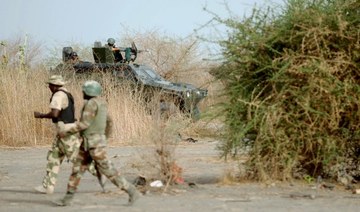ABUJA, Nigeria: Gunmen attacked a school in Nigeria’s northwest region Thursday and abducted at least 287 students, the headteacher told authorities, marking the second mass abduction in the West African nation in less than a week.
Abductions of students from schools in northern Nigeria are common and have become a source of concern since 2014 when Islamic extremists kidnapped over 200 schoolgirls in Borno state’s Chibok village. In recent years, the abductions have been concentrated in northwestern and central regions, where dozens of armed groups often target villagers and travelers for huge ransoms.
Locals told The Associated Press the assailants on Thursday surrounded the government-owned school in Kaduna State’s Kuriga town just as the pupils and students were about to start the school day at around 8 a.m.
Authorities had said earlier that more than 100 students were taken hostage in the attack. Sani Abdullahi, the headteacher, however, told Kaduna Gov. Uba Sani when he visited the town that the total number of those missing after a headcount was 287.
“We will ensure that every child will come back. We are working with the security agencies,” the governor told villagers in the area located 55 miles (89 kilometers) from the capital.No group claimed responsibility for Thursday’s attack though blame fell on armed groups that mostly constitute herders who have been accused of carrying out violent attacks and kidnappings for ransom following decades-long pastoral conflict with host communities.
Security forces arrived with the governor several hours later as a search operation widened, while community members and parents gathered to wait for news.
The attack occurred days after more than 200 people, mostly women and children, were abducted by extremists in northeastern Nigeria.
Anti-militant militia leaders have blamed Islamic State West Africa Province (ISWAP) for last week’s attack in Borno state, the heart of a militant insurgency which has left more than 40,000 people dead and two million displaced since 2009.
Several details about the attack in rural Ngala are still unclear and officials have given conflicting accounts. The number of people reported missing does not necessarily reflect the number held in captivity.
The UN’s Office for the Coordination of Humanitarian Affairs (OCHA) said the attack took place on Thursday last week and estimated over 200 people from camps for displaced people had been abducted.
It said armed attackers took the women while they were out collecting firewood.
“The United Nations strongly condemns the reported abduction of internally displaced persons (IDPs), many of them women, boys and girls,” it said.
OCHA said the figure came from initial estimates from community leaders, and said headcounts were being carried out in four displacement camps to verify the number.
It said the camps house almost 104,000 people, mostly women and children.
Anti-militant militia leader Shehu Mada had said that women from displacement camps were “rounded up by ISWAP insurgents” on Friday.
“Some of the women were able to escape and returned,” said Mada, who helped conduct a headcount which found “47 women from the wood-collecting mission could not be accounted for.”
Usman Hamza, another anti-militant militia leader, confirmed the account.
Kidnapping is a major problem across Nigeria, which is also grappling with criminal militias in the northwest and a flareup of intercommunal violence in central states.
Women, children and students are often targeted in the mass abductions in the conflict-hit northern region and many victims are released only after paying huge ransoms.
Last month kidnappers seized at least 35 women returning from a wedding in northwestern Katsina state.
Observers say both attacks are a reminder of Nigeria’s worsening security crisis which resulted in the deaths of several hundred people in 2023, according to an AP analysis.
Bola Tinubu was elected president of Nigeria last year after promising to end the violence. But there has been “no tangible improvement in security situation yet” under Tinubu, said Oluwole Ojewale, West and Central Africa researcher with the Africa-focused Institute for Security Studies.


























